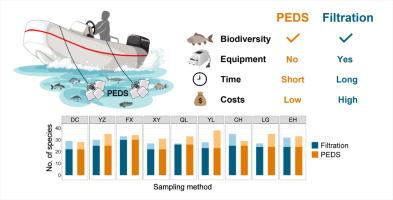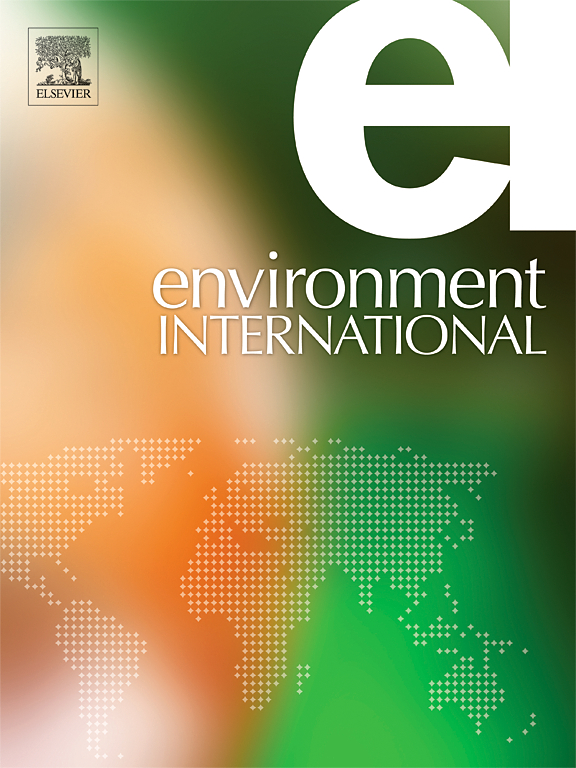Angling and trolling for eDNA: A novel and effective approach for passive eDNA capture in natural waters
IF 10.3
1区 环境科学与生态学
Q1 ENVIRONMENTAL SCIENCES
引用次数: 0
Abstract
The conventional water filtration approach for collecting environmental DNA (eDNA) has critical limitations. The collection of eDNA via passive eDNA samplers (PEDS) has been proposed as an alternative to the water filtration method. Here, we developed a novel and rapid eDNA sampling approach and evaluated the extent to which this method enhances eDNA sampling efficiency. We drove boats along transects across nine large natural lakes and deployed PEDS either by briefly submerging them at each sampling location (“angling”) or towing them in the water (“trolling”). One liter of water was also collected at each location and processed via the filtration method. Fish biodiversity was determined by metabarcoding analysis of eDNA extracts. Despite a short total submersion time (42–66 min of “angling”) and substantially fewer samples (PEDS: 3–6 samples; filtration: 21–33 samples per lake), PEDS generally detected more fish species in each lake as well as per sample compared with filtration. Detection probabilities for fish species were significantly higher for PEDS compared with the filtration method. PEDS are also superior to the filtration method since sampling requires less equipment, labor, time, and costs. Our innovative sampling strategy is thus effective and could be used for the eDNA biomonitoring of large water systems.

求助全文
约1分钟内获得全文
求助全文
来源期刊

Environment International
环境科学-环境科学
CiteScore
21.90
自引率
3.40%
发文量
734
审稿时长
2.8 months
期刊介绍:
Environmental Health publishes manuscripts focusing on critical aspects of environmental and occupational medicine, including studies in toxicology and epidemiology, to illuminate the human health implications of exposure to environmental hazards. The journal adopts an open-access model and practices open peer review.
It caters to scientists and practitioners across all environmental science domains, directly or indirectly impacting human health and well-being. With a commitment to enhancing the prevention of environmentally-related health risks, Environmental Health serves as a public health journal for the community and scientists engaged in matters of public health significance concerning the environment.
 求助内容:
求助内容: 应助结果提醒方式:
应助结果提醒方式:


